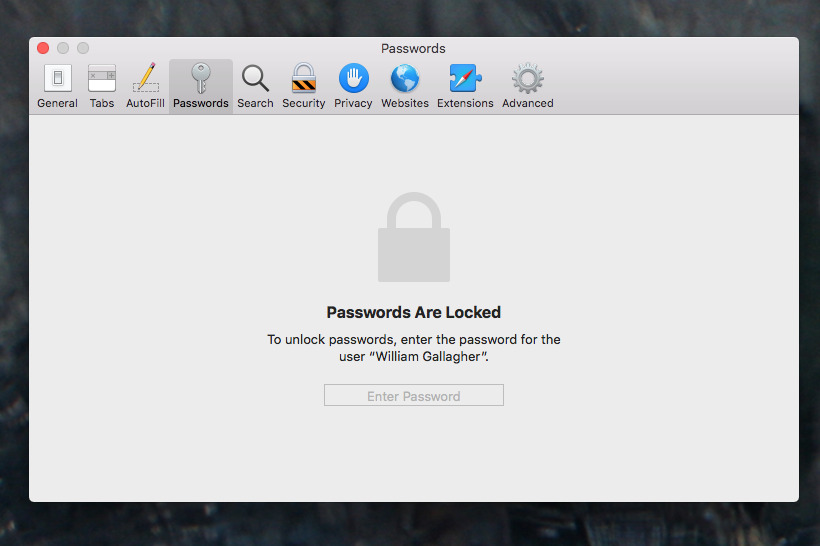

“For example, say I have enrolled with FIDO on my Mac and someone is trying to log in to my account using a username and password from some other device – this will raise a big red flag with the service provider, and they will ask for additional information before approving that login. “But it’s important to note how FIDO can also feed into risk engines,” she said. Shamas confirmed that there still will be a password in existence – for example, for account recovery – until the website chooses to offer to disable it entirely. Bill Gates predicted the death to passwords in his RSA 2004 keynote, we have more accounts with passwords than ever before, and those numbers are going to increase – period.” Thorsheim added: “I do not see this as a move towards a ‘passwordless’ future. “What they actually do is to implement WebAuthn support in their browser, coupled with the existing biometric security of Touch ID and Face ID.” “You cannot enable Touch ID or Face ID without first setting a PIN/password on your device. RECOMMENDED Firefox and Chrome yet to fix privacy issue that leaks user searches to ISPs “It is a step towards better user experience (UX) and better security for most, but it is important to differentiate between the need of entering passwords all the time and actually removing the use of passwords,” Thorsheim, founder of PasswordsCon, told The Daily Swig. It still won’t replace the need for passwords entirely, however, argues digital authentication expert Per Thorsheim. The use of biometrics as a method of unlocking a password lends an extra layer of security, preventing issues such as hacker-in-the-middle exploits and minimizing the risk of phishing attacks. WebKit engineer Jiewen Tan outlined Apple’s new web authentication feature during WWDC 20 ‘A step towards a better user experience’ “It is really a huge step forward in the industry’s movement beyond passwords with cryptographically secure authentication through the FIDO Alliance.” “With this latest development, websites can now provide millions of Apple users with access to a more secure and easier overall login experience with the Face ID and Touch ID technology they already use every day,” Megan Shamas, director of marketing at FIDO Alliance told The Daily Swig. Other platforms to already support FIDO-compliant web authentication are Microsoft and Google. This option has already been shipped with iOS 13.3, which was released last year and included support for FIDO2-compliant physical keys. The feature’s functionality is built on the WebAuthn component of the FIDO2 standard, developed by the FIDO Alliance.
#Password safari software#
Secure login experienceĭevelopers can employ this feature on their site with the Web Authentication API, Jiewen Tan, senior software engineer at Apple, explained during the online conference. One of the headline developments for Safari 14 is that the browser will enable websites to be unlocked via users’ Touch ID fingerprint or Face ID scan.

#Password safari update#
Joining a raft of new features, Apple’s latest desktop operating system will come bundled with what the tech giant is calling the “biggest Safari update ever”. The much-anticipated macOS 11 (Big Sur) was previewed yesterday at the company’s annual Worldwide Developers Conference. With the option to store addresses, credit cards, notes and other items, a password manager like LastPass also keeps the information you need every day just a few clicks away.Soon-to-launch browser for macOS 11 uses Face ID and Touch ID for more secure login experienceĪ new authentication feature in Safari 14, Apple’s latest web browser, will allow users to sign into websites using biometric scans. When it comes to your personal information, you deserve strong protection. LastPass also gives you extra security with options like two-factor authentication and password alerts.

But saving and filling passwords is pretty much the only thing Keychain can do it’s short on features to help you protect yourself online.Ī standalone password manager like LastPass gives you the convenience of syncing passwords and other stored data to almost any device, regardless of OS and browser. For anyone using the iOS and macOS ecosystem, it does seem like a convenient option that saves you time and the hassle of remembering every password. If you’re using Apple devices like the iPhone, iPad, or Mac computers, you may be aware of – or already using – the iCloud Keychain as your password manager to save and fill logins for different websites.


 0 kommentar(er)
0 kommentar(er)
